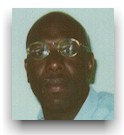Home
JD Features:

Welcome to Archived Volume 2 Issue 6 of Justice Denied
Table of Contents:

Directly from the desk of Clara Thomas Boggs Reports: New People, New Attention, and Other News
Feature Stories:
Jamie Higgins -- Was the Eyewitness Wrong? Jamie Higgins does not look at all like the man originally described by the eyewitness. In fact, the only thing he had in common with the description is that he's a black male.
Earl Bramblett: Was he framed by vengeful police?
Justice Long Overdue... The Story of John V. Carothers One hundred twenty-five miles wasn't far enough away from the crime for John V. Carothers. Perjured testimony and a judge's illegal instructions were enough to convict him.
Chester Lee Grauberger Story: A young man's dreams come true and in a night of celebration it all turns into a nightmare. His life is destroyed. The evidence is there to prove his innocence in the BCA (Bureau of Criminal Apprehension) laboratory.
The Commonwealth of Virginia v. Linda Darline Keene On July 14, 1995, an unknown assailant crept into 83-year-old Thelma Frasher's house and cruelly bludgeoned her to death. Ten months later, in May of 1996, the police arrested 47-year-old Linda Keene, Thelma's housekeeper, aide and companion and accused her of first-degree murder.
Frederick M. Dever Jr. Story No one listened to Kristen. She has been fighting to get her father freed from his wrongful conviction. She continues to fight to right a wrong that is long overdue.
Updates in this issue:
Eugene Casey
Joy Wosu
Feature Articles: Eyewitness Identification -- Hindrance to Justice? Just how accurate are eyewitnesses? Did the eyewitness really see THAT criminal? Or, did he only see someone who resembled him?
Elmer Ahart, Jr. was featured in our last issue (Volume 2 Issue 5). Mr. Ahart sent JD a beautiful and eloquent letter. Please read it here.

This month in Snapshots:
Is there a Moratorium in Maryland's Future?
Justice is Tried, Convicted and Executed in Virginia's Eagerness to Win
Senate to Debate the Innocence Protection Act of 2001
Europeans Decry Use of Death Penalty in the United States
The Exonerated Seek Safeguards Against Injustice
Townsend: DNA Frees Another Wrongly Convicted Retarded Man
New Jersey to Offer Free DNA Testing
The AMA Denies Endorsement of Moratorium
Reports: New People, New Attention, and Other NewsGreetings to our faithful readers.
The best news for me began with a phone call from Julie Herrick in Coos Bay, Oregon, just 17 miles from Coquille, where I work on JD. Julie, whose husband was wrongly convicted, offered her services to me in whatever capacity was needed. Since the day we invited her to lunch and to look over the scope of the projects I had in mind, she has been an unqualified blessing to JD. She took care of the backlogged mail that still keeps coming to me in spite of the fact that we've published addresses for inmates in different states.
Julie next tackled getting our books in order -- a major job. She has devised systems so that everything will be simpler. Julie is not someone who has loads of time on her hands. Not at all. She runs Taylor Maid Donuts in Coos Bay, and also deals with her husband's case, so this is one highly motivated woman.
Most thankful for Julie is our Nancy Sanders, who is now breathing a sigh of relief that I'm no longer in charge of making sure the bank account balances.
The other new person to whom I'll introduce you is Richard Alevizos, met through my husband, Chip, when he attended a gathering for the Green Party. Richard and his fiancée, Sara, came to visit and work. When he learned of JD Magazine, he immediately offered his services as an editor. You will find his debut piece under the title of "The Exonerated Seek Safeguards Against Injustice."
One more new person is Randi Schwartz, who has been researching grants for us. We certainly need a few of these, and will work with Randi to that end.
We should have their mini-bios by the next issue of JD.
Anne Good continues to pursue getting our hard copy published, but has run into a time problem relating to the transfer of money that may delay publishing, but not for long. Anne has lined up a prestigious publisher connected with a college interested in working with us.
In other news, Eve Hightower of Madison, Wisconsin's WORT 89.9 FM (community owned) radio, Director of the show, In Our Backyard, contacted us. Ms. Hightower's show deals in issues of injustice. She interviewed my daughter, and the show should air within a week or so. It is the first interview my daughter has granted in a very long time, but she trusted Eve Hightower to be fair to her. It was extremely emotional.
Ms. Hightower is also interested in interviewing others who have stories about the injustice system to tell. You may email her at AEHightower@eudoramail.com, if you know of anyone.
This wraps it up for this issue, considering that the entire staff seems to have time problems this month.
For the staff at Justice Denied Magazine,
Clara A. Thomas Boggs
Innocence Project of Washington, D.C. Backs Out of Casey CaseBy Barbara Jean McAtlin, Justice: Denied Staff Reporter
In a surprise move, the Innocence Project of Washington, D.C. recently decided to NOT take on the Freddie Eugene Casey case as they had previously announced. Although they believe in Eugene's innocence and say the have uncovered a substantial amount of evidence backing Eugene's claims, they have decided that the time it would take to get to the bottom of this case would make it too difficult to work on others. In the meantime, our source at Centurion Ministries in New Jersey has said they will continue to work unofficially on Eugene's case until other arrangements can be made.
This news is a devastating setback for Eugene Casey and his tireless supporter, Tamela Carey, as well as others of us who are close to this case. Ms. Carey is now waiting to receive the investigative papers she turned over to David Bos of the Innocence Project of Washington, D.C. so she may continue her investigation and her quest for justice for Eugene Casey. Currently, Eugene is in need of a pro-bono attorney who is willing to work with Ms. Carey and to spend the time necessary to prove Eugene's innocence.
For more information about the Freddie Eugene Casey case, please contact Tamela Carey at Tamelac@stargate.net or 1-540-963-5777.
Freddie Eugene Casey
#128207
Red Onion State Prison
Virginia Department of Corrections
P.O. Box 1900
Pound, VA 24279
Update: Joy WosuBy Peter Centorcelli
Joy Wosu has filed an executive clemency for pardon in May 2000. Anyone wishing to write to Governor Pataki on her behalf can do so at the following address:
George E. Pataki
Executive Chambers
State Capital
Albany, New York 12224
Is there a Moratorium in Maryland's Future?
Edited by Stormy Thoming-Gale, JD Staff
Maryland lawmakers were considering a moratorium as the legislative session came to a close. The same bill passed the House of Delegates. Senate conservatives threatened a filibuster, and lawmakers adjourned without voting on the plan to halt executions until a University of Maryland criminologist can complete a search for evidence of racial bias in the system that places people on Maryland's death row. Though legislators failed to act, the governor can halt executions until review is done.
Governor Parris N. Glendening was the one who initiated the death penalty study and he's the one who signs off on all executions. The governor has acknowledged the possibility that racial bias may be the reason African-Americans are over represented on death row. There are other problems as well; one of the four men who face possible execution this year was allowed to defend himself at trial. Another had a lawyer who did not sufficiently raise questions about his mental stability -- a mitigating factor that could have kept him off death row.
Kirk Bloodsworth was twice convicted of capital murder in Maryland courts before a DNA test showed he could not have been guilty. Eugene Colvinel came within a week of execution last year, even though no physical evidence connected him with the murder for which he was convicted. The governor intervened to spare his life after the courts failed to do so.
Supreme Court Justice Ruth Bader Ginsburg said she supports a proposed state moratorium on the death penalty. She cited that one reason for her support is that she has found that accused murderers with good lawyers do not get the death penalty. Ms. Ginsburg also criticized the amount of money spent to defend indigent defendants.
Ms. Ginsburg said in a lecture that she has yet to see a death case among the dozens coming to the Supreme Court on eve-of-execution stay applications in which the defendant was well represented at trial.
A few days after the state's legislature failed to vote on the moratorium, the Maryland Court of Appeals put a temporary halt on executions. With four executions possibly scheduled for this summer, the court declined to expedite an appeal by one of the death row inmates, who argues that a recent Supreme Court opinion renders the Maryland death penalty unconstitutional. By refusing to speed the matter along, the court most likely ensured that oral arguments will not take place until the fall. The decision indefinitely postponed at least two executions that could have been scheduled this summer.
Sources: The Associated Press, Washington Post, Baltimore Sun
Justice is Tried, Convicted and Executed in Virginia's Eagerness to Win
Edited by Barbara Jean McAtlin, Justice: Denied Staff
Once again, the Virginia attorney general's office has won another battle against its old foe, Justice. A Commonwealth court recently denied petitions that had been filed by Centurion Ministries and a number of prominent newspapers requesting a more modern form of DNA testing on the evidence from the Roger Keith Coleman case. Although DNA testing had been done in the Coleman case, the more modern DNA testing the groups had asked for was unavailable at the time of his trial. The groups had asked for the testing to help them try to answer some of the remaining questions surrounding the case and Roger Keith Coleman's rather questionable 1992 execution. Coleman had been convicted of the rape and murder of his sister-in-law. There was no bona fide reason for the court to disallow the testing, but Attorney General Mark Earley (who has since resigned to run for governor of Virginia) opposed the requests and said there was no legitimate controversy surrounding Mr. Coleman's guilt. He probably wouldn't be too surprised to find out that a number of Virginians actually do believe Roger Keith Coleman was innocent of the crime for which he was executed. Now, the question is whether or not the Commonwealth of Virginia will destroy the evidence to prevent the truth -- whatever it may be -- from ever coming out. The Commonwealth has proven time and again that it is more concerned with safeguarding itself from humiliation than from seeking out justice.
Although the attorney general's office is right to stand by the convictions they secure, their eagerness in protecting their convictions at any cost borders on fanatical. They should be more interested in justice and fairness -- even if it means they will have "lost" a case. The resistance to DNA testing after-the-fact in the Coleman case does not conform to the duty of the attorney general's office to reveal the real truth -- or to acknowledge their mistakes when they do happen. At a hearing that was held earlier regarding the Coleman DNA testing, an attorney for the office said, "It would be shouted from the rooftops that the Commonwealth of Virginia executed an innocent man" if the tests were to prove that the Commonwealth had done exactly that.
Not only is the attorney general's office balking at DNA testing in the Coleman case, they recently argued against DNA testing for Brian Lee Cherrix, a living death row inmate. Their thoughts were that there was nothing amiss with a murder trial in which the accused -- unknowingly -- was "defended" by the victim's former lawyer. The office also vigorously fights against any measures that would address the problems that allow cases such as this. This dangerous combination of win at any cost and opposition to fairness means that innocent people are trapped in a nightmare created by the Commonwealth while dangerous, murdering criminals roam free with no impunity.
Source: The Washington Post
Senate to Debate the Innocence Protection Act of 2001
Edited by Barbara Jean McAtlin, Justice: Denied Staff
The United States' hotly debated death penalty issue has finally wound its way into the Senate after a Senate Judiciary Committee, led by Chairman Patrick Leahy, a Democrat from Vermont, deliberated the bipartisan Innocence Protection Act of 2001. Among those who will be called to testify in the Senate debate are Beth Wilkinson, a former lead prosecutor in the Oklahoma City bombing case, and Michael Graham, an innocent vacationer who spent fourteen years on Louisiana's death row before being exonerated.
"Ninety-six wrongful capital convictions are ninety-six too many. One of our nation's most fundamental rights is the right to counsel," Senator Leahy said. "In the most serious cases, where we are considering the execution of a human being, the Innocence Protection Act will help ensure that defendants have a right not just to counsel, but to competent counsel."
The main topics of discussion at the hearing included a measure that would encourage individual states to provide qualified and experienced attorneys to all defendants who are facing the death penalty as well as establishing enforceable minimum standards for defense lawyers in death penalty cases.
Although their reasons for change may be dissimilar, seldom have liberals, conservatives, Republicans, Democrats, capital punishment supporters and opponents agreed so widely on the need for change. As it stands, there are currently 222 co-sponsors of the Innocence Protection Act of 2001 in the Senate and the House.
Senator Gordon Smith, a death penalty supporter, said, "I believe that the death penalty is a useful tool for deterring crime, but it must have the confidence of the people to work. Providing competent counsel to poor defendants will help maintain the integrity of our justice system and make the administration of capital punishment more effective."
In recent years, public confidence in capital punishment in the United States has been shaken. According to information gathered from the Death Penalty Information Center, since 1973, ninety-six people on death row have been found to have been wrongly convicted and were finally released. In June 2000, one of the largest studies ever undertaken on capital punishment found that nearly seven out of every ten of the thousands of cases that were examined had at least one significant and reversible defect.
According to a number of polls conducted by the media, the majority of citizens approve of improvements to the capital punishment system even though support for the death penalty continues to be close to the 19-year low that was recorded by Gallup Polls in 2000. Another recent media poll disclosed that sixty-eight percent of Americans feel that capital punishment is unfair because "sometimes an innocent person is executed."
Europeans Decry Use of Death Penalty in the United States
Edited by Barbara Jean McAtlin, Justice: Denied Staff
At a recent Council of Europe meeting in Belgium, Brussels, the head of the Council criticized the use of capital punishment in the United States by saying the practice is useless against crime and an immoral choice that has landed innocent people on death row.
At the same time, at the first World Congress Against the Death Penalty Conference, the European Union's top foreign policy official, Chris Patten, condemned China's "Strike Hard" policy -- a campaign of executions by China -- by saying they were "so horrifying as to be almost unbelievable."
During the opening session of the three-day World Congress Against the Death Penalty conference, Walter Schwimmer, the secretary-general of the Council of Europe, attacked the United States' death penalty policy. The conference, which was held in Strasbourg, France, opened immediately following the federal executions of Oklahoma City bomber Timothy McVeigh and convicted murderer and drug trafficker Juan Raul Garza.
"Do you know how many people in the United States are on death row?" Schwimmer asked the gathering. "No less than 3,700. Would anyone really believe that the death penalty is a tool to fight crime? If that would be true, the United States would be a country without crime and without violence."
Schwimmer spoke of the case of Joaquin Jose Martinez, a Spaniard who spent 37 months on Florida's death row for the murder of a drug trafficker and an exotic dancer. Martinez was acquitted after a retrial.
"What would have happened if the execution some years ago had not been postponed? Would anybody think this execution had been justice?" Schwimmer asked.
During a recent visit to Europe, American President George W. Bush was beleaguered by intense protest from capital punishment opponents. Bush defended the United State's capital punishment policy by saying that "the death penalty is the will of the people in the United States."
European criticism also focused on China's anti-crime campaign dubbed "Hard Strike." China has sent hundreds of people to their deaths for crimes ranging from murder to drug dealing to embezzlement -- after parading them at public rallies. Critics worry that the Chinese courts are speeding judgments and condemning people to death using coerced confessions and unreliable evidence.
The organizer of the conference, the Council of Europe, has 43-members and has gained a complete ban on, or a moratorium on, executions in its member states. Likewise, abolishing capital punishment is a requirement for membership in the 15-member European Union.
Source: New York Times
The Exonerated Seek Safeguards Against Injustice
SnapShot by Richard Alevizos
Michael Graham, who spent fourteen years of his life in a prison cell on death row due to the vagaries of a justice system gone wrong, had his chance to speak out against the very system that wrongfully incarcerated him. In a hearing before the Senate Judiciary Committee that focused on a provision of the Innocence Protection Act that would impose mandatory standards for lawyers appointed to capital cases and withhold federal prison funds from states that fail to meet those standards, Michael Graham and others testified.
Mr. Graham, a Roanoke roofer, who spent those years on death row before he was released last year, testified in favor of sweeping reforms meant to safeguard innocent people from being wrongfully executed.
Wrongful execution has already been committed and now as ever needs to stop. Mr. Graham testified that "During my 14 wasted years on death row, I always hoped that the nightmare would count for something, that's why I am here today." Mr. Graham, convicted for the 1986 slayings of an elderly couple in Louisiana and later exonerated, let the Committee know that his lawyers had little criminal trial experience and one in particular had only recently graduated from law school. Hardly the lawyers to have represent you in a capital punishment case for starters and hardly the punishment to be meted out in a country which claims to have no human or civil rights abuses occurring within its own borders.
It is just lucky for Mr. Graham that last December some attorneys working for free took up his case and proved beyond the shadow of a doubt that key witnesses had lied and that the prosecutor had deliberately withheld evidence. After the case was dismissed against him, Mr. Graham wasn't even given enough money to catch a bus back to his hometown. Hardly the compensation one should receive for having been wrongfully convicted by a justice system gone wrong and a prosecutor who will never go to jail for committing what should be considered felony fraud and misrepresentation.
"Someone on trial for their life deserves a fair trial and a competent defense attorney," said Senator Patrick Leahy (D-Vt.), who is the committee's chairman and the bill's chief sponsor. He further added; "We're talking about the ultimate penalty that can be imposed."
At a time when a nation wide, not to mention a world wide, debate is taking place, it can only be hoped that this hearing will produce a bill which will produce a law that will put fairness back into the justice system. Maybe then not only rich people will be able to afford proper representation and maybe then can we actually see who is guilty and who is innocent. It goes without saying that there is no fairness in the capital punishment system. In the last 24 years more than 90 people in 22 states have been released from death row because of concerns that they were wrongfully convicted.
Four of those men made it to the Capitol for this hearing, including Earl Washington, the only prisoner ever to be exonerated from Virginia's death row. Also present was the first person ever to be freed because of DNA testing. Kirk Bloodsworth, a waterman from Maryland was freed in 1993 after spending 9 years in prison after wrongfully being convicted of a 1984 rape and murder of a 9 year old girl in Baltimore County. Due to these lapses in the law Virginia and Maryland have begun studying the fairness of their processes and Illinois has completely halted all executions.
There is widespread bipartisan support for giving convicted felons access to DNA testing. With this out of the way, some politicians feel the debate can then focus on the issue of legal counsel in capital cases. "Let's remedy some of the injustices and do it right away," said Sen. Orrin G. Hatch (R-Utah). "We can not waste another day in providing that kind of resource."
Even though Senators like Orrin Hatch feel access to DNA is important, the hearing focused on attorney competence. There is testimony showing that there are inmates on death rows that were represented by attorneys who fell asleep or were drunk during trial or they simply lacked the experience or resources to try a time consuming criminal case. Why these attorneys would be considered acceptable and by what standards is where the system has gone wrong. And oft is the time when such attorneys themselves believe their client is guilty, thus compromising the defendant's representation and ability to obtain a fair trial.
The bill, if made into a law, would create a national commission of prosecutors, judges and lawyers that would devise a standard to ensure proper, just and good legal services to all. It would take away authority from state judges (often criminally negligent themselves) to appoint defense lawyers in capital cases. This authority would be given to an independent authority, which could appoint proper representation for those in need.
The fact that Graham and three other former death row inmates attended the hearing to provide their testimony gives proof that changes need to be made. And just to make sure the wrong person isn't wrongfully executed, all death sentences should be postponed until all cases have been reviewed and all possible DNA testing has been done to serve the needs of justice.
Source: Washington Post
Townsend: DNA Frees Another Wrongly Convicted Retarded ManBy Stormy Thoming-Gale, JD Staff
Jerry Frank Townsend, a forty-nine year old man, spent 22 years in prison after falsely confessing to six murders. DNA evidence exonerated him from two of those murders. The DNA evidence cast doubt on his guilt in the other crimes and the prosecutor requested that those convictions be thrown out as well.
Mr. Townsend's IQ is between 50 and 60, giving him the mental capacity of an 8-year-old.
The police and Mr. Townsend's lawyers have said he confessed to crimes he did not commit to please detectives.
Miami Assistant Police Chief James Chambliss said that Mr. Townsend liked the cops, the police were his buddies. Chief Chambliss also noted that having suspects like the detectives is a great tool, Mr. Townsend was trying to be helpful to the detectives and that is where the problem came up.
Mr. Townsend will not be retried because prosecutors involved in the case say it would be too hard to retry him on some of the murder and rape charges because prosecutors have no physical evidence and cannot find witnesses.
Upon releasing Mr. Townsend, the judge cited the deficiency in the state's evidence, a lack of trust in its evidence including the obtained confession, and in some cases what may very well be Mr. Townsend's outright innocence.
During taped confessions, the police helped Mr. Townsend remember details and corrected him when his story was inconsistent.
Source: Associated Press
New Jersey to Offer Free DNA Testing
By Stormy Thoming-Gale, JD Staff
Starting soon, Attorney General John Farmer Jr. will begin assigning a team of lawyers to review applications from defendants who want DNA testing.
The team will then identify cases in which evidence has been properly preserved. The State Police would then analyze the DNA samples or it would be done by private laboratories at state expense. If the results exonerate the inmate, the state would join defense counsel in seeking to overturn the conviction. This project is being called, "The Truth Project."
The Truth Project is one of the first state programs of its kind and one of the most extensive, according to the National Association of Attorneys General. Ohio, the first to offer free DNA testing to prisoners, limits its program to death row inmates. Rhode Island recently announced an initiative similar to The Truth Project.
New Jersey's program will be much broader than Ohio's. Priority will be given to testing inmates still serving prison sentences but defendants on probation or parole will also be served under The Truth Project, as also would convicted sex offenders who are required to register under Megan's Law.
The state estimates that more than 12,000 people convicted of homicide or sexual assault could apply for DNA testing. The actual number is expected to be much smaller and that even fewer cases will meet the criteria for DNA testing.
The total cost for the state to get the program up and running is estimated at about $300,000.
New Jersey has required convicted sex offenders to provide a blood sample since 1994, so their DNA can be analyzed and entered into a computerized database.
Last September, New Jersey law extended that to those convicted of murder, manslaughter, kidnapping, aggravated assault and other serious crimes.
The database now contains DNA profiles on 5,920 offenders. According to the National Institute of Justice, the FBI's Combined DNA Index System (CODIS) is expected to contain DNA profiles on more than 1 million convicted felons by 2005.
DNA evidence has been used to free people wrongfully convicted in New Jersey. McKinley Cromedy was released after 6 years in prison for rape that DNA tests show he did not commit. David Shepard was cleared in 1995 after serving more than 11 years.
DNA testing will not be granted simply because a prisoner requests it. The Truth Project will require that they pass a polygraph examination.
There is no way to limit how the state uses a DNA sample so prisoners will have to weigh the consequences. For example, a DNA test might clear them of one crime but implicate them in another.
Source: Star Ledger
The AMA Denies Endorsement of Moratorium
By Stormy Thoming-Gale, JD Staff
The American Psychiatric Association and the American Bar Association have gone on record in support of a National Death Penalty Moratorium but the American Medical Association has not.
Dodging the issue, the AMA house approved a resolution stating that the AMA does not take a position on capital punishment. To save face, the AMA officially urges legislative and legal authorities to implement changes in the administration of capital punishment, if used at all, and to promote its fair and impartial administration.
The New York delegation of the AMA brought the issue of Moratorium support to the AMA. Dr. Duane Cady, an AMA trustee said that the resolution wasn't asking for a change in AMA policy. The AMA has always been neutral on the issue of capital punishment.
Dr. Nathan Reed, a surgeon from Albany, New York, says the moratorium is needed because of problems with the current sentencing system, including a disproportionate number of poor, African-American inmates on death rows. Dr. Reed went on to say that these issues are medical problems.
Although the AMA does not support the moratorium, the AMA still opposes any physician participation in executions. Participation includes pushing the syringe, pulling the switch, inserting the needle or training nonphysicians to participate in executions. According to the AMA's Council on Ethical and Judicial Affairs all such participation is unethical.
Source: Reuters Health
© Justice Denied




